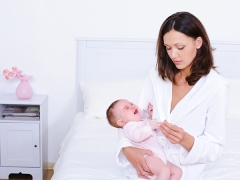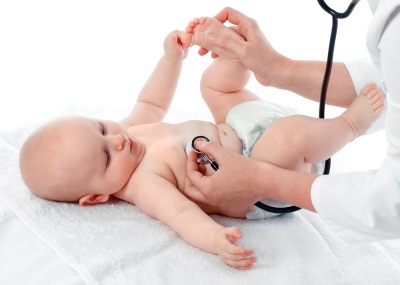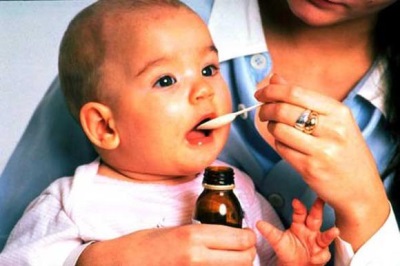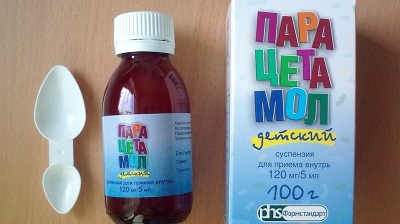Antipyretics for newborns
Temperatures that have risen in an infant during the first months of life are always alarming for parents. Should I immediately run to the pharmacy for an antipyretic agent, what medicines are allowed for such small children and what is important to know about their use?
When should you beat the temperature?
Parents should be aware that the temperature response of newborns is different from that of older children. In a baby of the first months of life, the temperature can rise very quickly and under the influence of various factors. To bring down the temperature in an infant of this age should be when it rises more than + 38 ° C. You should also consider the general condition of the baby.
It is very important not to act independently, but immediately call a doctor if the child has any congenital abnormalities, especially if they concern the nervous system and the heart.
Why you should not reduce a small temperature?
An increase in temperature is often the body’s response to bacteria and pathogenic viruses. This reaction includes not only a rise in temperature, but also the production of protective proteins, called interferons. In addition, the high temperature prevents the reproduction of harmful microorganisms. The result will be the formation of immunity and a faster cure.
If the temperature of the crumbs did not exceed + 38 ° C, and the baby’s condition did not deteriorate much, it is worthwhile to delay using antipyretic drugs.
When can I do without antipyretic?
In young children, the susceptibility to chemicals is increased, so it is quite understandable that parents wish to minimize the impact on the body of the crumbs of various medications. To determine whether you can avoid taking antipyretic drugs, you should carefully monitor the infant and follow the instructions of the pediatrician.
If the child tolerates the temperature increase relatively calmly, the thermometer does not exceed 38-39 degrees, and there are no aggravating circumstances (heart defects, pathologies of the nervous system and others), nothing can be given. But as soon as any deterioration of the baby’s condition is noted, it is necessary to take urgent measures.
Forms
All antipyretic drugs intended for children under one year are available in the following forms:
- Liquid. For babies 1-3 months, suspensions are produced, and syrup can also be given to children over 3 months old. They are easy to dose due to the measuring spoons included in the package. The dose of liquid antipyretic is calculated based on the weight and age of the baby.
- Suppositories - candles. They differ in the dosage of the active substance, which is indicated on their packaging. Most antipyretic suppositories are prescribed from 3 months of age, but there are drugs with a dosage of 50 mg, intended for babies from 1 to 3 months.
Suspensions and syrups attract not only ease of use, but also a pleasant smell and taste of the product, but it is because of the taste and aromatic additives that such drugs are more dangerous for babies, since they have the risk of allergic reactions.
The main advantage of using candles is a smaller number of negative effects, because the used candle is absorbed in the rectum, so it will not irritate the digestive tract. In candles there are no additives that cause allergies, and the effect of this form of the drug is longer. However, as the baby grows, it becomes more difficult to use candles, as the baby begins to protest against such medicines.
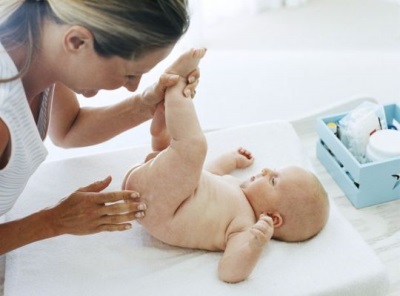
Popular drugs
A newborn baby can only be given drugs, the active ingredient of which is paracetamol. It should be noted that all these tools are allowed for use in children older than 1 month, so the decision on their appointment to the newborn should be taken only by a doctor.
|
Drug name |
Release form |
Dosage for newborn |
Restrictions |
|
Children's Paracetamol |
Suspension |
10 mg per kg |
Maximum 4 doses per day. Not longer than 3 days. |
|
Children's Panadol |
Suspension |
The doctor determines |
No more than 4 times a day. |
|
Daleron |
Suspension |
10 mg per kg |
Accepted up to 3 days up to 4 times a day. |
|
Syrup |
Determined by the weight of the child (it is marked on the measuring spoon) |
Allowed from 1 month with a child's weight more than 4 kg. |
|
|
Dolomol |
Suspension |
Determined by a doctor |
Is taken after a meal after 1 hour. Not longer than 3 days. |
|
Candles |
1 suppository (50 mg) |
Appointed from 1 month no more than 3 days. |
Paracetamol will help to reduce the temperature and eliminate pain in cases of viral infections, but for diseases caused by bacteria, as well as serious health problems, this drug is ineffective. So if the temperature after the use of such medication does not decrease, there is a chance that the disease in the newborn is much more serious than the usual SARS.
How are they given?
First of all, it is important to note that a doctor must prescribe any medicine for a newborn baby. Only a pediatrician can determine why the temperature of the baby has risen, and then choose the right treatment. It is also important to adhere to the dosages indicated on the packaging of the selected antipyretic agent.
A suspension or syrup is given to a child in the first months of life using a special pipette. Gaining the right amount of medicine, it is poured into the mouth of the toddler. The remedy can also be given from a spoon, but for most babies this way of giving the drug can be problematic.
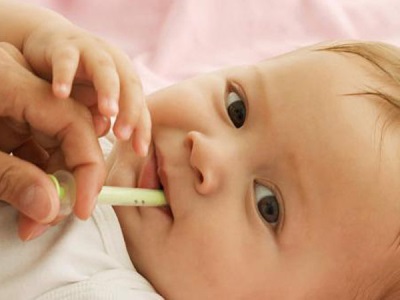
Additional methods
To alleviate the condition of a baby with fever, you can:
- Give your child more drink. If we are talking about the baby, it should be more often applied with her mother's breast.
- Choose comfortable clothes for your baby. The child should not be wrapped up so as not to raise the temperature further due to overheating. Set the temperature in the nursery at + 18 + 20 degrees.
- In the absence of vascular spasm of the skin and after consultation with the pediatrician, wipe with warm water, but in no case vodka or acetic.
What drugs can not be given?
Only paracetamol is usually prescribed to babies under 3 months of age, since it is the safest type of antipyretic. Even ibuprofen allowed in children is not recommended for children under 3 months. However, there are drugs that children generally do not give. it aspirin and analgin, as well as anti-pyrin and amidopyrine, which are already outdated. Also, children under 12 years of age should not be given drugs based on nimesulide.
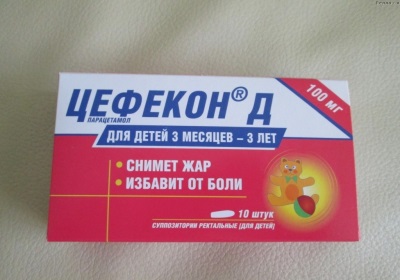
Rules of application
- Antipyretic drugs do not give a certain schedule, such as antibiotics. They should be given only if the temperature rises.
- Usually drugs with antipyretic properties are not prescribed for a period longer than 3-5 days.
- The maximum number of doses of antipyretics per day is 4 doses.
- Candles enter no more than 2-3 times.
- There should be at least 4 hours between medications.
